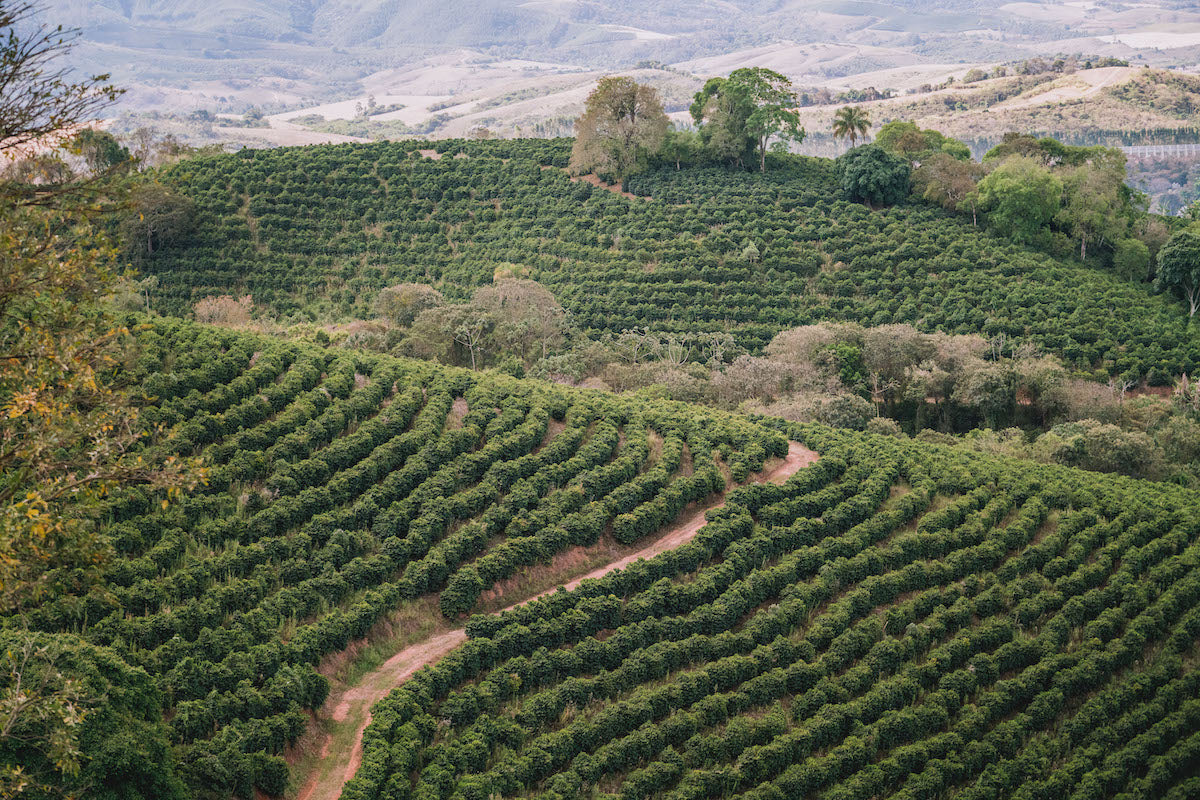
Brazil is more than just a country; it's a coffee powerhouse. As the world's leading producer of coffee for over 150 years, Brazil holds a dominant position in the global coffee industry. Its influence on the world's coffee consumption is unparalleled, and its coffee production process is a fascinating blend of tradition and innovation. Let's explore the intricacies of coffee production in Brazil, taking you from the vast plantations to the inviting aroma of a freshly brewed cup.
Historical Footprints of Brazilian Coffee
Coffee was first introduced to Brazil in the 18th century, and by the mid-19th century, the country had become the largest coffee producer in the world. The fertile soil, favourable climate, and expansive landscapes provided the perfect conditions for coffee cultivation, which thrived across several Brazilian regions.
Geographical and Climatic Factors
Brazil's vast territory, spanning several latitudes and altitudes, results in a wide variety of climates and soils, allowing for diverse coffee profiles. The country's major coffee-growing regions include Minas Gerais, São Paulo, Espírito Santo, Bahia, and Paraná, each with its unique microclimate and coffee characteristics.
The Minas Gerais and São Paulo regions are particularly known for their high-quality Arabica coffee, while Espírito Santo is the largest producer of Robusta beans. The vast array of climatic conditions across these regions allows for a wide range of flavours, making Brazilian coffee incredibly versatile.
Coffee Cultivation and Processing
Brazil boasts an impressive number of coffee farms - over 300,000 - ranging from small family-owned farms to large industrial plantations. Brazilian coffee cultivation often takes advantage of the country's flat terrains, which allows for mechanised harvesting. This contrasts with many other coffee-producing countries where the mountainous topography necessitates hand-picking.
The processing method used in Brazil varies depending on the region and the type of coffee. The most common methods are the natural (dry) and pulped natural (semi-washed) methods. The natural method, where the coffee cherries are dried in the sun with the fruit still on the bean, contributes to the sweet, full-bodied flavour profile that Brazilian coffees are known for.
Quality Control and the Brazilian Coffee Industry Association (ABIC)
The Brazilian Coffee Industry Association (ABIC) oversees the quality control of coffee production in the country. It has established a strict classification system based on the type, size, and quality of the beans. This system ensures that Brazilian coffee maintains a high standard, and it allows consumers to choose from a variety of quality levels to suit their preferences.
Brazilian Coffee in the Global Market
Brazil is a true titan in the global coffee market. It's not only the largest producer of coffee, accounting for about a third of all coffee worldwide, but it's also a significant exporter. Brazilian coffee finds its way to countries all around the globe, with the United States, Germany, and Italy being some of the biggest importers.
While Brazil is known for its commercial-grade coffees, it also produces exceptional specialty coffees. Regions like Minas Gerais and São Paulo are renowned for their specialty coffee production, with beans exhibiting nuanced flavours, balanced acidity, and a smooth body. These coffees often score highly in international coffee competitions and are sought after by specialty coffee roasters worldwide.
Future Outlook
As we look to the future, Brazilian coffee production continues to evolve. The industry is increasingly focusing on sustainability and the production of high-quality, specialty coffees. Programs like the Brazilian Specialty Coffee Association (BSCA) are promoting Brazilian coffees' unique qualities and encouraging sustainable farming practices.
Conclusion
Brazil's coffee production is an intricate dance of tradition and innovation, carried out across the country's vast landscapes. It's a testament to the adaptability of the Brazilian people, their deep connection to the land, and their unwavering commitment to coffee cultivation. From the rolling hills of Minas Gerais to the flat, expansive plantations of Espírito Santo, the story of Brazilian coffee is as diverse and rich as the country itself.
With a firm grasp on both commercial and specialty coffee markets, Brazil stands as a global coffee titan. Its influence extends far beyond its borders, shaping tastes and coffee cultures around the world. As the industry continues to evolve, embracing sustainability and quality, the future of Brazilian coffee looks brighter than ever.
So, the next time you take a sip of your coffee, remember the journey it took from the sun-drenched fields of Brazil to your cup. Whether it's a robust, full-bodied espresso or a delicately nuanced pour-over, you're not just enjoying a cup of coffee - you're experiencing a piece of Brazil's rich coffee heritage.
Photo by: Cafe Imports
